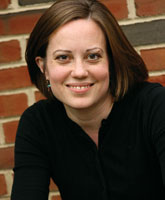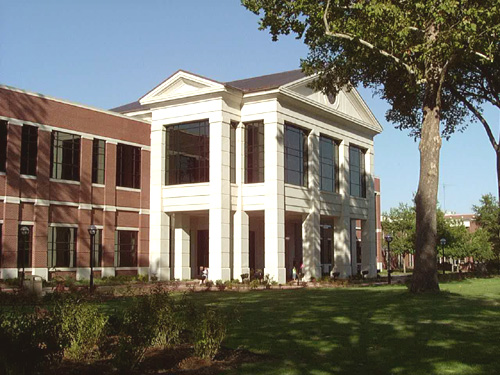Here…
• A parable of fear, thanks to my son and Paddington Bear.
• Is Christian higher ed suffering a crisis of vision?
• Only if the fundamentalists win and the only two Anabaptist schools in the CCCU are kicked out entirely.
• But my denominational experience made me hope that the CCCU would actually become more, not less, unified.
• The provost of my denomination’s university shared his own thoughts on the role of the Christian university.
• And I’m still looking for Christian college alumni, students, employees, and other friends to share what they love most about that model of education.
…There (Other Christian Higher Ed Commentary)…
 • Carl Trueman thought the CCCU situation pointed to the need for stronger “confessional coherence” in evangelicalism, but the provost of Union University responded that the confessional issue was quite clear: “The good news that Jesus is Lord entails that we believe what he says wholeheartedly and follow him faithfully. In our view, one cannot consistently affirm his lordship and affirm the legitimacy of same-sex marriage.”
• Carl Trueman thought the CCCU situation pointed to the need for stronger “confessional coherence” in evangelicalism, but the provost of Union University responded that the confessional issue was quite clear: “The good news that Jesus is Lord entails that we believe what he says wholeheartedly and follow him faithfully. In our view, one cannot consistently affirm his lordship and affirm the legitimacy of same-sex marriage.”
• I’m more sympathetic, of course, to the argument of Jenell Paris, who has learned to let go of the “doctrine of separation” and “found nothing of the Gospel diminished. In fact, it seems bracingly alive in conversation, life, and conflict with people with whom I disagree, both within my religious group and beyond.” And to the observation of one Evangelical Presbyterian pastor: “I can’t think of a denomination, church or organization that has become more orthodox merely by the retreat of evangelicals.”
• An anonymous professor reflected on what it’s like to be gay and closeted on a Christian college faculty. (Well, I wish she or he had actually written more about that topic — almost half the piece is about evolution.)
• Meanwhile, the CCCU added two rather conservative members: Harding University in Arkansas, and Wisconsin Lutheran College (whose denomination is to the right of the Missouri Synod).

• Perhaps germane to these discussions… Scot McKnight (who was kind enough to pick up some of what I’d blogged questioning the notion that marriage was “at the heart of the Gospel”) began a series on “zealotry” within Christianity: “…too often we are committed to more than the Bible in our zeal.”
…and Everywhere (Other Topics)
• A hack of the Ashley Madison website revealed the email addresses of 32 million “would-be adulterers.” The response to that release of information got Gracy Olmstead thinking of The Scarlet Letter.
 • I’m writing a talk for the end of the month that mentions Christopher Browning’s Ordinary Men — which Jay Case also teaches regularly.
• I’m writing a talk for the end of the month that mentions Christopher Browning’s Ordinary Men — which Jay Case also teaches regularly.
• Michael Limberg wrote a perceptive post on the surprising rise of Christian realism among politically progressive evangelicals (at least as they look to foreign policy).
• I’m surprised? Only four in ten American Catholics are familiar with Pope Francis’ new ecological encyclical — barely ahead of the national average. (And of those where familiar, not even 25% had heard about it at Mass.)
• Roger Olson argued that insisting on having a national flag in a Christian worship space is actually unpatriotic.
• In the face of further division over issues like sexuality, one Mennonite writer wondered if it wouldn’t be better simply to blow up denominations and reassemble smaller groups under bigger tents.
• Troubling news from Brethren Church-related Ashland University, which laid off fourteen tenured faculty (and nine other professors, three on the tenure track) despite having steady enrollment and a multi-million dollar budget surplus.
• How will higher ed look different in ten years? I think Joshua Kim’s observation about improved classroom design is most interesting — I certainly see hints of it where I work — and the one I’d have least expected ten years ago.
• Here’s a trend I’d like to see take hold in ten years: students recognizing that, in the vast majority of cases, going to a “prestigious” school is not necessary, or worth the cost.
• Especially elite schools who hoard endowment and spend more out of it on hedge fund managers than on student assistance. (Yep, that’s my graduate alma mater.)
Thanks for linking to the article of Jenell Paris. She makes good sense, thought it does not bode well for my book inviting Christians to engage in all sorts of fringe conversations
One point of clarification: saying the WELS is to “the right” of the LCMS is really unclear and probably misleading. Both are very diverse. I would differentiate them by noting that the LCMS has a much stronger traditionalist – confessionsalist – gnesio-Lutheran element to the point of being very catholic (and proud of it) in some respects. They have strongly resisted being remade as evangelicals on the free or mega church model. The WELS, not so much. Both churches prohibit women in office. The LCMS dogmatized young earth creationism in the 1920s and their conservatives still hold to this. The WELS has Cold War era pope-as-antichrist material still in its official positions, IIRC. Relative to Luther, I would say the WELS is “the liberals.”
Dan – The “right of the Missouri Synod” line is something I’m borrowing from Lutheran friends — ELCA and LCMS, but you’re right: it’s a potentially confusing way of phrasing things; Lutheran spectrums aren’t always analogous to those used in evangelicalism. However, in my experience of the CCCU (which is the context for this link), two of the major markers that would differentiate “left” from “right” (problematic as these terms are) are women’s roles and ecumenism (especially in recent weeks). Correct me if I’m wrong, but… LCMS isn’t exactly know for its commitment to cooperation across confessional lines, but WELS doesn’t maintain fellowship even with the LCMS… in part because while neither ordains women, WELS is upset that the Missouri Synod allows women’s suffrage within the church. http://www.lcms.org/faqs/denominations#welsdifferences
I should add: this is only about denominations; I don’t have any idea what any of this means within a college or university setting. I’m decently familiar with the ELCA model of higher ed, but don’t know how little or much it overlaps with what you’d find at schools related to other Lutheran denominations. And while I’ve met some faculty and students from another WELS school (Martin Luther), I know next to nothing about Wisconsin Lutheran.
Well that’s the view from the LCMS. Each of these churches has its distinctives as a result of mutual reaction, but they all seem to emanate from the sacerdotalism of the LCMS where the clergy remain a priesthood, and there is no other church office considered to be ordained by God.
Because the LCMS views religious vocations so narrowly it is free to allow women into all other non-ordained roles. The WELS regards religious vocations more broadly, rating its school teachers on a level with pastors, but they also refuse to allow women into any office with authority over men (as opposed to boys) or to vote in the church for related reasons.
The official WELS doctrines on “fellowship” are so severely contracted that they are less ecumenical than even the LCMS — you’re not to join other Christians from unaffiliated churches even in prayer. (This can be and is interpreted in maximalist and minimalist ways.) Working in the same doctrinal tradition, the LCMS wiggled out of the same conclusion by inelegantly deciding prayer is not worship.
On the congregational level, traditionalists in both denominations strongly resemble each other and pre-Vatican II Catholic churches more than anything else while their liberals may think a lot alike. (E.g., you may have to apply in advance to be cleared to take communion and get a card certifying you to do so, and the pastor will face away from the congregation (no central, round tables) when consecrating the communion elements.
My impression of the WELS is that you are more likely to see and feel something like contemporary Evangelical worship in some of their churches where the traditional liturgy is all but put aside for the main services, while in the LCMS there has been effective traditionalist resistance against such developments. (WELS traditionalists exist but feel like a dwindling minority.) Meanwhile the LCMS adheres officially to Young Earth Creationism, the Textus Receptus and King James Bible with the Johannine interpolation that Erasmus was forced to re-add to his second edition due to conservative English bishops before the Reformation. Saying “which one is more conservative” is a really tough call.